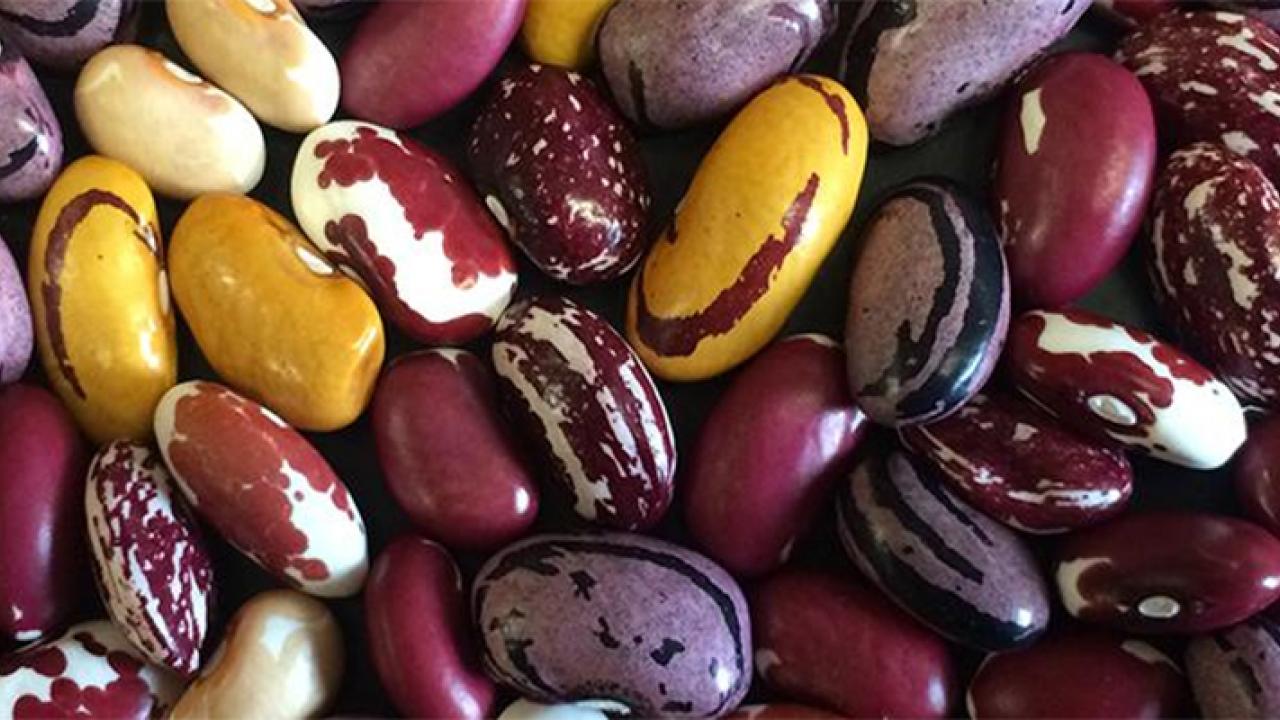
UC Davis Graduate Students Breed Beans for Organic Farming
Graduate students at the University of California, Davis, have begun field tests on very rare commodities: high-yield, disease-resistant bean varieties that can thrive on organic farms.
“Most crops — about 95 percent — have been bred for conventional farming and can be difficult to grow in organic systems,” said Travis Parker, a Ph.D. student in plant biology who is leading the project. “These new bean varieties could make a big difference in performance and profitability of organic legumes like pinto, black and kidney beans, as well as heirloom-like varieties with high culinary quality.”
Parker is working with a team of student breeders under the guidance of Professor Paul Gepts, a bean geneticist with the UC Davis Department of Plant Sciences. The bean project is part of a larger plant-breeding effort at UC Davis to develop new varieties of tomatoes, peppers, beans and other vegetable crops that can flourish in both organic and conventional systems.
Why breeding matters
To create a winning variety, breeders cross plants with desired traits and select the best offspring over multiple generations. It takes several years of plot testing to give birth to a variety good enough to name and sell.
With each new generation of crops, breeders pick plants that perform well in the system in which they are being raised. That’s usually conventional farming, which is the most common system. Conventional agriculture uses some applications that organic farmers don’t use, such as synthetic pesticides and fertilizers. As a result, those crops can be tricky for organic farmers to grow because they are not especially well suited to organic production.
Parker’s team recently received a $25,000 grant from Western Sustainable Agriculture Research and Education, a U.S. Department of Agriculture program that funds innovative projects in agriculture. The grant will support the team’s ongoing efforts to identify the genetic basis of important traits, develop tools to accelerate the time it takes to measure traits as plants grow in the field and — ultimately — release new varieties specifically bred for high performance on organic farms.
“We have begun trials on virus-resistant lines in fields on campus and on farms in California,” Parker said. “We hope to have varieties available for commercial production soon after 2020.”
Read the full story on the UC Davis website.
About UC Davis Graduate Studies
Graduate Studies at UC Davis includes 99 dynamic degree programs and a diverse and interactive student body from around the world. Known for our state-of-the-art research facilities, productive laboratories and progressive spirit – UC Davis offers collaborative and interdisciplinary curricula through graduate groups and designated emphasis options, bringing students and faculty of different academic disciplines together to address real-world challenges.
UC Davis graduate students and postdoctoral scholars become leaders in their fields: researchers, teachers, politicians, mentors and entrepreneurs. They go on to guide, define and impact change within our global community.
For information on Graduate Studies’ current strategic initiatives, visit the Graduate Studies strategic plan page.
